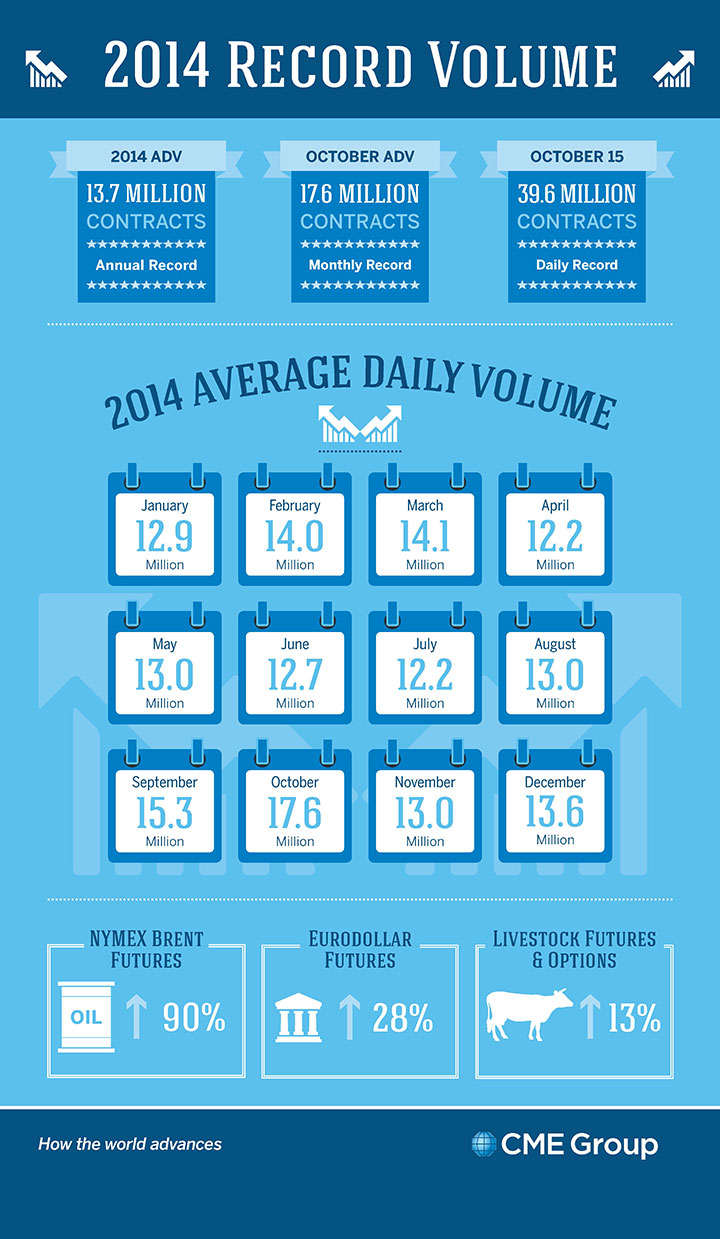With a global turnover of over 21.8 billion contracts last year, futures are one of the most heavily traded and liquid derivatives in the world. So who trades in the futures markets? The futures markets typically attract two types of participants: hedgers and speculators.
| HEDGERS INCLUDE: |
SPECULATORS INCLUDE: |
| Commodity producers (e.g. a wheat farmer).
Manufacturers who use commodities (e.g. a computer components manufacturer who uses gold). Companies whose services are heavily fuel dependent (e.g. an airline or a courier firm). Financial institutions and fund managers who use index futures for cost-efficient hedging. Wealthy individuals who need to lock in prices (often for tax reasons). |
Independent traders (e.g. a retail swing trader).
Proprietary trading firms (e.g. a trading arcade that funds and profit shares) Hedge funds and portfolio managers (e.g. a trend following CTA). Market-makers (e.g. high frequency trading firms, liquidity providers, or floor traders). Index funds (e.g. a passive ETF manager who uses futures to track an index efficiently). |
Futures Hedging and How It Works
Hedgers are usually the producers or consumers of a commodity or owners of the underlying asset, and use the futures market to manage risks resulting from fluctuations in price.
A grain farmer, for example, might sell wheat futures to guarantee they will receive a certain price for their crop upon delivery.
When implemented correctly, hedging allows for neither direct profit nor loss when exposure in both the underlying and the futures are taken together; instead, it is a mechanism for locking in prices at their current level. Often these locked in prices enable producers to obtain credit to operate their business.
TIP: Don’t confuse hedging as an activity with hedge funds! Although these fund structures were originally created to provide a hedge component for long-only portfolios, nowadays they practice a wide range of strategies and may or not help hedge your other investments.
Speculators and Risk
Speculators absorb this risk whilst attempting to profit from favorable changes in price. In doing so they provide liquidity to the futures markets, enabling hedgers to enter and exit the markets efficiently. Speculators may include independent traders or those at proprietary trading firms, hedge funds and portfolio managers, or market-makers licensed by the exchange to provide liquidity. Speculators may trade in and out of a contract in just a few milliseconds, or may hold positions for months or years depending on their strategy for profit.

Now that you know who trades in the futures markets and why they participate, take a look at the next article in the knowledgebase to find out why you should consider making futures a part of your financial strategy . . .
| View the next futures article: Why Trade Futures? |
